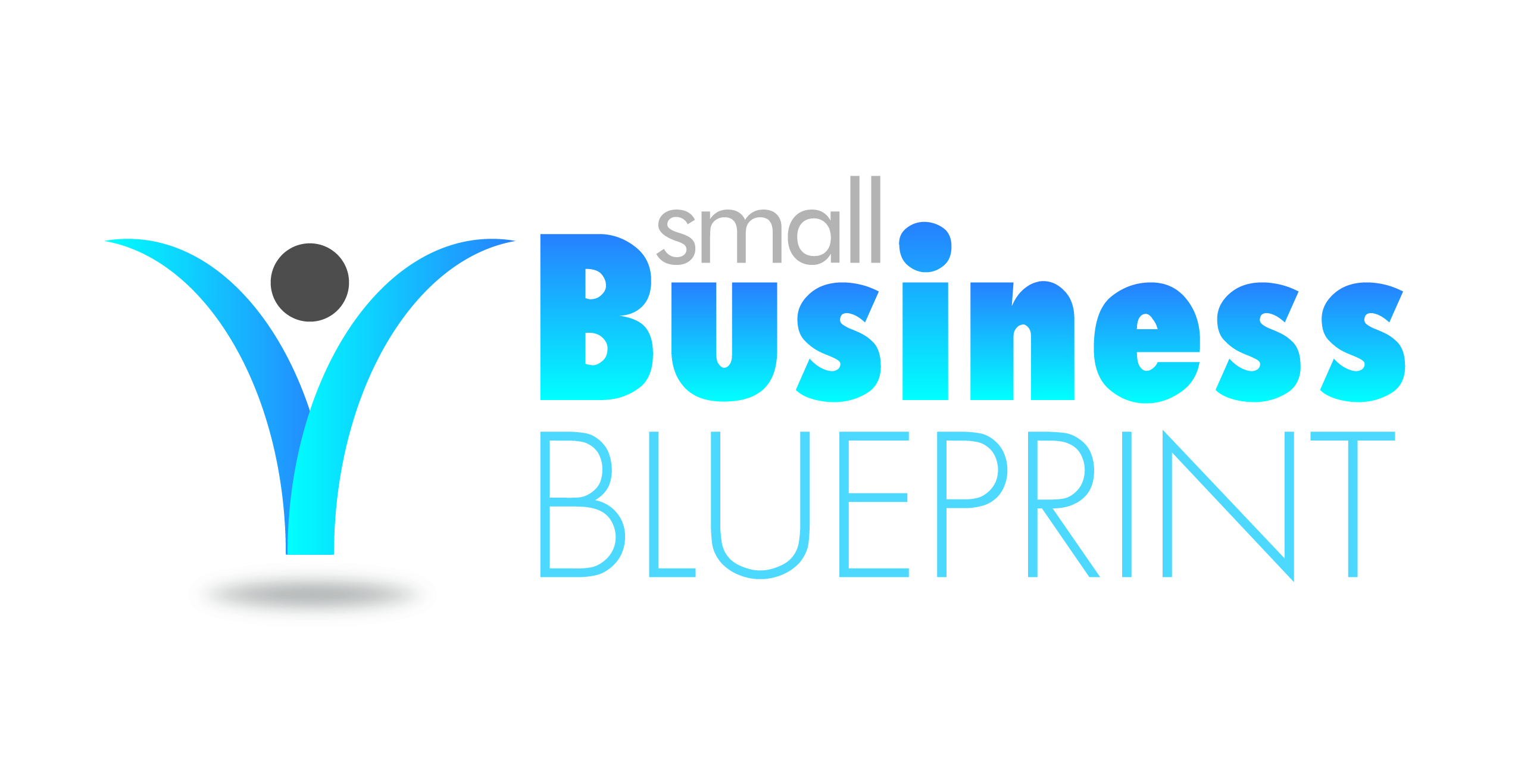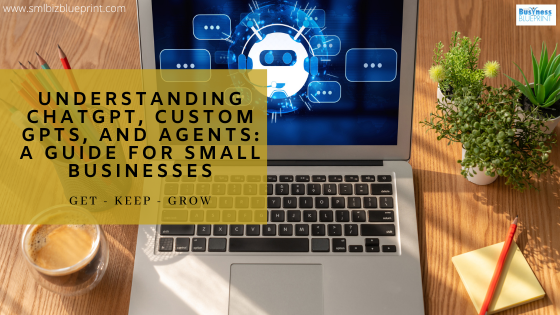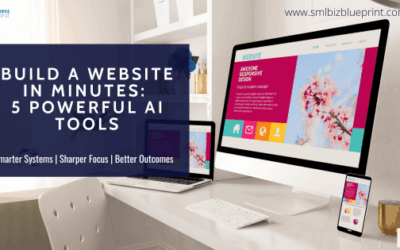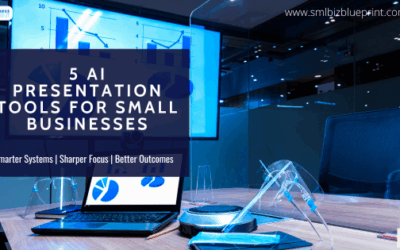In today’s ever-changing digital landscape, small businesses constantly seek innovative ways to stay competitive and meet their customers’ evolving needs.
Enter ChatGPT, a powerful AI tool revolutionising small businesses’ engagement with their audience.
In this guide, we’ll explore ChatGPT and how it can be customised to meet small businesses’ unique needs.
From understanding the fundamentals of ChatGPT to harnessing its capabilities in customer service strategies, we’ll cover everything you need to know to unlock the full potential of this game-changing technology.
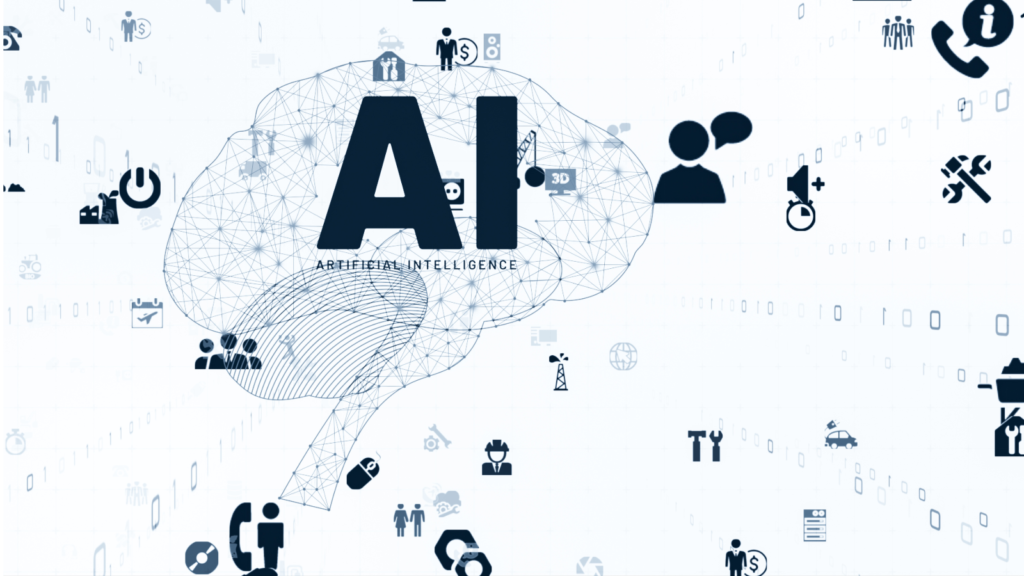
Whether you’re a small business owner looking to streamline operations or a marketer aiming to enhance customer experiences, this guide will provide invaluable insights into leveraging ChatGPT effectively.
#1 Understanding ChatGPT: A Game-Changer for Small Businesses
In the fast-paced world of modern business, staying ahead of the curve is crucial for success. One technology that’s increasingly becoming a game-changer for small businesses is ChatGPT.
But what exactly is ChatGPT, and how does it work?
What is ChatGPT?
ChatGPT is an advanced AI model developed by OpenAI that uses natural language processing (NLP) to understand and generate human-like text responses. It’s based on the Generative Pre-trained Transformer (GPT) architecture, which has been fine-tuned on vast amounts of text data to generate coherent and contextually relevant responses to various prompts.
How Does ChatGPT Work?
At its core, ChatGPT operates by processing input text and generating responses based on its understanding of language patterns and context. It doesn’t rely on pre-programmed responses but instead learns from the vast amount of text data it’s trained on. This allows ChatGPT to produce responses that mimic human conversation with impressive accuracy.
Capabilities of ChatGPT
One of ChatGPT’s key strengths is its versatility. It can be used for various applications, including customer service automation, content generation, language translation, and more. Its ability to understand and generate natural language makes it a valuable tool for small businesses looking to automate repetitive tasks and improve efficiency.
Benefits of ChatGPT for Small Businesses
Enhanced customer interactions: ChatGPT can respond instantly to customer inquiries, improving response times and overall satisfaction.
Streamlined operations: ChatGPT can help small businesses save time and resources by automating customer support and data entry tasks.
Scalability: ChatGPT can handle many inquiries simultaneously, allowing small businesses to scale their operations without compromising quality.
In summary, ChatGPT is a groundbreaking technology that holds immense potential for small businesses. By understanding how ChatGPT works and its capabilities, businesses can harness its power to streamline operations, enhance customer experiences, and stay ahead of the competition.
#2 CustomGPT vs Standard ChatGPT: Tailoring AI Solutions to Your Business Needs
As small businesses continue to explore the possibilities of AI technology like ChatGPT, one key consideration is whether to use a standard ChatGPT model or customise it to suit specific business requirements better.
Let’s delve into the differences between CustomGPT and standard ChatGPT models and how businesses can tailor AI solutions to their unique needs.
CustomGPT vs Standard ChatGPT: What’s the Difference?
Standard ChatGPT: Organizations like OpenAI pre-train standard ChatGPT models on large datasets of text from the Internet. These models offer general-purpose capabilities and can be used out of the box for various tasks.
CustomGPT: CustomGPT, on the other hand, allows businesses to fine-tune ChatGPT models using their own proprietary data. This customisation process enables businesses to tailor ChatGPT to understand better industry-specific terminology, brand voice, and customer interactions.
Benefits of CustomGPT for Small Businesses
Increased Relevance: By training ChatGPT on proprietary data, businesses can ensure that the AI model generates highly relevant responses to their industry and audience.
Improved Accuracy CustomGPT models can be fine-tuned better to understand business-specific language and context nuances, leading to more accurate responses and interactions.
Enhanced Brand Consistency: Customizing ChatGPT allows businesses to maintain consistency in brand voice and messaging across all customer interactions, reinforcing brand identity and building customer trust.
Examples of CustomGPT Use Cases for Small Businesses
E-commerce Recommendations: A small e-commerce business can train a CustomGPT model on past purchase data to generate personalised product recommendations for customers.
Legal Assistance: A law firm can customise ChatGPT to understand legal terminology and provide basic legal advice to clients via chat or email.
Healthcare Support: A healthcare provider can use CustomGPT to answer patient inquiries about symptoms, treatment options, and appointment scheduling, improving accessibility and patient satisfaction.
In summary, while standard ChatGPT models offer general-purpose capabilities, CustomGPT allows small businesses to tailor AI solutions to their specific needs.
By customising ChatGPT, businesses can increase relevance, accuracy, and brand consistency in customer interactions, ultimately driving better outcomes and customer satisfaction.

#3 Harnessing the Power: Integrating ChatGPT into Your Customer Service Strategy
In today’s digital age, customer service plays a pivotal role in shaping the success of small businesses. With the advent of AI technology like ChatGPT, businesses can revolutionise their customer service strategies and provide seamless, efficient customer support.
Let’s explore how businesses can harness the power of ChatGPT in their customer service strategies.
The Importance of Customer Service in Small Businesses
Customer service is often the first point of contact between a business and its customers, making it crucial for building trust and loyalty.
Studies have shown that customers are likelier to continue doing business with a company that provides excellent customer service, even if it means paying slightly higher prices.
Ways ChatGPT Can Enhance Customer Service
Instant Responses: ChatGPT can respond instantly to customer inquiries, reducing wait times and improving overall satisfaction.
24/7 Availability: With ChatGPT, businesses can offer round-the-clock customer support, regardless of time zones or operating hours.
Consistent Quality: ChatGPT delivers consistent responses to common customer queries, ensuring a high standard of service across all interactions.
Strategies for Integrating ChatGPT into Customer Service
Live Chat Support: Incorporate ChatGPT into live chat support systems to immediately assist customers browsing your website.
Email Support: Use ChatGPT to automate responses to frequently asked questions in customer support emails, freeing human agents to handle more complex inquiries.
Social Media Management: Integrate ChatGPT with social media platforms to automatically respond to customer messages and comments, maintaining an active online presence.
In summary, integrating ChatGPT into your customer service strategy can provide numerous benefits for small businesses, including faster response times, improved customer satisfaction, and greater efficiency.
By effectively leveraging ChatGPT, businesses can elevate their customer service to new heights and gain a competitive edge in today’s market.
#4 Ensuring Data Privacy and Security: Best Practices for Small Businesses
As small businesses integrate AI technology like ChatGPT into their operations, ensuring the privacy and security of customer data becomes paramount. With data breaches and privacy concerns making headlines, it’s essential for businesses to implement robust measures to protect sensitive information.
Let’s explore best practices for ensuring data privacy and security when using ChatGPT.
The Importance of Data Privacy and Security
Customers entrust businesses with their personal information when interacting with AI-powered systems like ChatGPT, prioritising data privacy and security.
Failure to safeguard customer data can lead to costly data breaches, reputation damage, and customer trust loss.
Best Practices for Data Privacy and Security
Encryption: Implement end-to-end encryption to protect data in transit and at rest, ensuring that sensitive information remains secure from unauthorised access.
Access Controls: Restrict access to ChatGPT systems and data to authorised personnel only, minimising the risk of insider threats and unauthorised data access.
Data Minimization: Only collect and store the minimum amount of data necessary for ChatGPT operations, reducing the risk of exposure during a breach.
Regular Audits: Conduct audits of ChatGPT systems and data handling processes to identify and address any security vulnerabilities or compliance issues.
Compliance with Regulations: Depending on the nature of your business and the data you handle, Ensure compliance with relevant data protection regulations such as GDPR, CCPA, and HIPAA.
Small businesses must prioritise data privacy and security when integrating AI technology like ChatGPT into their operations. By implementing robust measures such as encryption, access controls, and compliance with regulations, businesses can protect sensitive customer information and maintain trust in their brand.
#5 Overcoming Challenges: Training and Implementation of ChatGPT
While the potential benefits of integrating ChatGPT into small business operations are significant, there are also challenges to consider, particularly regarding training and implementation. From selecting the right model to ensuring effective deployment, businesses must navigate various hurdles to maximise the value of ChatGPT.
Let’s explore some common challenges and strategies for overcoming them.
Common Challenges in Training and Implementation
Model Selection: Choosing the right ChatGPT model for your business needs can be challenging, given the multitude of options available. Businesses must consider model size, performance metrics, and compatibility with existing systems.
Data Preparation: Training a ChatGPT model requires large volumes of high-quality data, which can be difficult for small businesses to acquire and preprocess. Ensuring data cleanliness, relevance, and diversity is essential for training a robust AI model.
Technical Expertise: Implementing ChatGPT often requires specialised technical skills in machine learning, natural language processing, and software development. Small businesses may lack in-house expertise or resources to deploy and maintain ChatGPT systems effectively.
Integration Challenges: Integrating ChatGPT into existing workflows and systems can present logistical challenges, particularly in complex environments. Businesses must ensure seamless integration with customer service platforms, websites, and other channels.
Performance Monitoring: Once ChatGPT is deployed, monitoring its performance and fine-tuning the model over time is crucial for maintaining accuracy and relevance. Businesses must establish processes for ongoing monitoring, evaluation, and optimisation.
Strategies for Overcoming Challenges
Collaboration: Partnering with AI experts or consulting firms can help small businesses navigate the complexities of ChatGPT training and implementation, leveraging their expertise and experience.
Data Augmentation: Augmenting existing data with synthetic or external data sources can help overcome data availability and diversity limitations, improving the training dataset’s quality.
Training Workshops: Training workshops or resources for employees can help bridge the knowledge gap and empower staff to use ChatGPT effectively.
Gradual Rollout: Adopting a phased approach to ChatGPT implementation allows businesses to gradually integrate the technology into their workflows, minimising disruption and ensuring a smooth transition.
Performance Metrics: Establishing clear performance metrics and benchmarks for ChatGPT allows businesses to track its effectiveness over time and identify areas for improvement.
In conclusion, while training and implementing ChatGPT pose challenges for small businesses, strategic approaches and partnerships can help overcome these hurdles and unlock the full potential of AI technology.
By addressing common challenges and adopting best practices, businesses can effectively harness ChatGPT’s power to enhance productivity, improve customer experiences, and drive growth.

#6 Understanding Agents: A Key Component of Small Business Success
In AI technology, agents are pivotal in enabling small businesses to streamline operations, enhance customer experiences, and drive growth. But what exactly are agents, and how do they contribute to small business success?
This section will delve into agents’ functionalities and their impact on small businesses.
What are Agents?
In the context of AI technology, agents refer to intelligent software programs or virtual entities designed to perform specific tasks or functions autonomously. These agents leverage machine learning algorithms, natural language processing, and other AI techniques to effectively interpret, analyse, and respond to user input.
Functionalities of Agents
Agents can serve a variety of purposes within small businesses, including:
Customer Service: Agents can be deployed as virtual customer service representatives, responding instantly to customer inquiries and support requests.
Sales Assistance: Sales agents can help customers make purchasing decisions, provide product recommendations, and facilitate transactions.
Data Analysis: Agents can analyse large datasets to extract insights, identify trends, and make data-driven recommendations for business decisions.
Task Automation: Agents can automate repetitive tasks such as data entry, scheduling, and document processing, freeing human resources for more strategic activities.
Impact of Agents on Small Businesses
The adoption of agents can have several positive impacts on small businesses, including:
Improved Efficiency: Agents can perform tasks faster and more accurately than humans, increasing productivity and cost savings.
Enhanced Customer Experiences: Agents provide instant responses and personalised interactions, improving customer satisfaction and loyalty.
Scalability: Agents can handle many inquiries simultaneously, allowing small businesses to scale their operations without compromising quality.
Data-driven Insights: Agents can analyse vast amounts of data to uncover actionable insights, helping businesses make informed decisions and optimise performance.
In summary, agents are a key component of small business success. They enable businesses to automate tasks, enhance customer experiences, and gain valuable insights from data. By leveraging agents effectively, small businesses can stay competitive in today’s digital landscape and drive growth.
#7 Key Differences Between ChatGPT, Custom GPTs, and Agents
Understanding the distinctions between ChatGPT, Custom GPTs, and agents in AI technology is crucial for small businesses looking to leverage these tools effectively. Each offers unique functionalities and capabilities tailored to specific business needs.
Let’s explore the key differences between ChatGPT, Custom GPTs, and agents.
ChatGPT:
Definition: ChatGPT is an AI model developed by OpenAI that uses natural language processing (NLP) to generate human-like text responses based on input prompts.
Functionality: ChatGPT is designed to understand and generate natural language text, making it ideal for tasks such as customer service automation, content generation, and language translation.
Key Features: ChatGPT offers general-purpose capabilities and can be used out of the box for a wide range of applications without customisation.
Custom GPTs:
Definition: Custom GPTs refer to ChatGPT models that businesses have fine-tuned or customised using their own proprietary data.
Functionality: Custom GPTs allow businesses to tailor AI solutions to their needs by training the model on industry-specific data, terminology, and use cases.
Key Features: Custom GPTs offer increased relevance, accuracy, and brand consistency compared to standard ChatGPT models, making them ideal for businesses with unique requirements.
Agents:
Definition: Agents are intelligent software programs or virtual entities designed to perform specific tasks or functions autonomously.
Functionality: Agents leverage AI techniques such as machine learning and natural language processing to interpret, analyse, and respond effectively to user input.
Key Features: Agents can serve various purposes within small businesses, including customer service, sales assistance, data analysis, and task automation.
Takeaway
ChatGPT provides general-purpose capabilities for natural language processing tasks.
Custom GPTs allow businesses to tailor AI solutions to their specific needs using proprietary data.
Agents are intelligent software programs designed to perform specific tasks autonomously, leveraging AI technology.
#8 Criteria for Using ChatGPT vs. Custom GPTs vs. Agents
When considering the adoption of AI technology like ChatGPT, Custom GPTs, and agents, small businesses must assess their specific needs, goals, and constraints to determine the most suitable solution. Each option offers unique functionalities and benefits, but certain criteria can help businesses make informed decisions.
Let’s explore the key criteria for choosing ChatGPT, Custom GPTs, and Agents.
Complexity of Tasks:
ChatGPT: Ideal for handling routine tasks such as answering customer inquiries, providing product recommendations, and generating content.
Custom GPTs: Suited for businesses with specialised needs or domain-specific requirements that standard ChatGPT models may not adequately address.
Agents: Best suited for tasks requiring complex decision-making, contextual understanding, and personalised customer interactions.
Customisation Requirements:
ChatGPT: It offers general-purpose capabilities and can be used without customisation for various applications.
Custom GPTs: Allow businesses to tailor AI solutions to their needs by fine-tuning the model on proprietary data, terminology, and use cases.
Agents: Can be customised to perform specific tasks or functions autonomously, allowing businesses to adapt to changing requirements.
Data Availability and Quality:
ChatGPT: Requires large volumes of high-quality data for training, but businesses may rely on pre-existing datasets available from OpenAI or other sources.
Custom GPTs: Businesses must have access to proprietary data relevant to their specific domain or industry to train Custom GPTs effectively.
Agents May require less data for training than GPTs, depending on the complexity of the tasks they are designed to perform.
Implementation Complexity:
ChatGPT: It is relatively straightforward to implement, as businesses can leverage pre-trained models and existing APIs provided by AI platforms like OpenAI.
Custom GPTs: Require additional effort and expertise for data collection, preprocessing, model training, and integration into existing systems.
Agents: Implementation complexity varies depending on the scope and complexity of the tasks assigned to the agent and the integration with other business processes and systems.
Takeaway
Task complexity, customisation requirements, data availability, and implementation complexity are key factors when choosing between ChatGPT, Custom GPTs, and Agents.
ChatGPT offers general-purpose capabilities suitable for routine tasks, while Custom GPTs allow businesses to tailor AI solutions to their specific needs.
Agents provide flexibility and autonomy in performing specific tasks or functions depending on the requirements of the business.
Conclusion
In today’s rapidly evolving business landscape, adopting AI technology has become necessary for small businesses aiming to stay competitive and meet the evolving needs of their customers.
Throughout this guide, we’ve explored the transformative potential of ChatGPT, Custom GPTs, and agents in revolutionising small business operations and enhancing customer experiences.
From understanding the fundamentals of AI technology to navigating the complexities of customisation and implementation, we’ve covered key concepts, criteria, and best practices for effectively leveraging these powerful tools.
Whether you’re looking to streamline customer service, personalise interactions, or automate routine tasks, ChatGPT, Custom GPTs, and agents offer versatile solutions tailored to your needs.
As you embark on your journey to integrate AI technology into your small business operations, remember to assess your requirements carefully, prioritise data privacy and security, and seek out expertise and guidance when needed.
By harnessing the power of ChatGPT, Custom GPTs, and Agents, you can unlock new opportunities for growth, innovation, and success.
FAQs
Q1. What is ChatGPT, and how does it differ from Custom GPTs and agents?
A1 ChatGPT is an AI model developed by OpenAI for natural language processing tasks, while Custom GPTs are tailored versions trained on proprietary data. Agents, on the other hand, are intelligent software programs designed to perform specific tasks autonomously.
Q2 What are the benefits of using ChatGPT in small businesses?
A2 ChatGPT can streamline customer service, automate tasks, enhance personalisation, and provide valuable insights from data, ultimately improving efficiency, productivity, and customer satisfaction.
Q3 How can small businesses customise ChatGPT to meet their specific needs?
A3: Small businesses can fine-tune ChatGPT models using their own proprietary data to improve relevance, accuracy, and brand consistency, ensuring that the AI solution aligns with their unique requirements.
Q4: What are the challenges of implementing AI technology like ChatGPT in small businesses?
A4 Challenges include selecting the right model, acquiring and preprocessing data, ensuring data privacy and security, overcoming technical expertise gaps, and integrating AI systems into existing workflows and systems.
Q5. How can small businesses ensure data privacy and security when using ChatGPT and Custom GPTs?
A5: Implementing encryption, access controls, data minimisation, regular audits, and compliance with data protection regulations can help safeguard sensitive customer information and maintain trust.
Q6. What are some practical use cases of ChatGPT, Custom GPTs, and Agents in small businesses?
A6 Use cases include automating customer service inquiries, providing personalised product recommendations, analysing data for insights, automating repetitive tasks, and facilitating sales assistance.
Q7. Where can small businesses find resources and support for implementing AI technology like ChatGPT?
A7 Small businesses can leverage resources provided by AI platforms, consult with AI experts or consulting firms, attend workshops or training sessions, and explore online communities and forums for guidance and support.
Other Articles
A Strategic Guide to Prioritizing AI Initiatives for Small Business Success
Guide to Conquering AI Integration Challenges For Small Businesses
Unlock Business Growth: Essential Systems Every Small Business Owner Needs!
